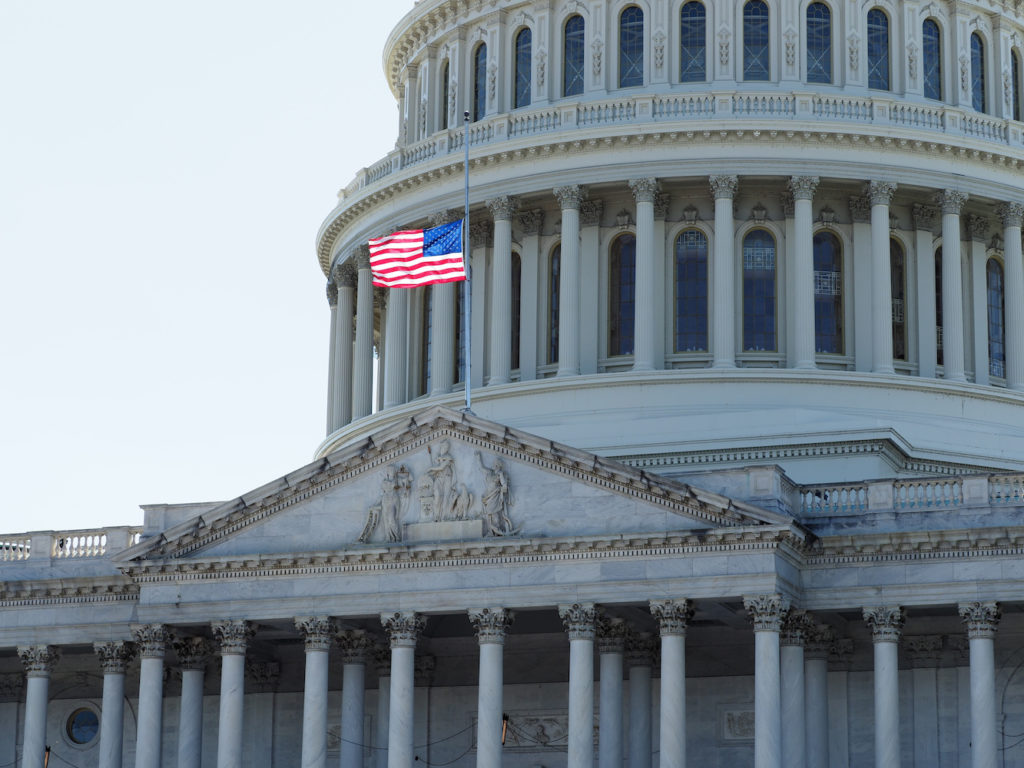Catholic education leaders urge support for federal school choice bill
(reimaginED) – The United States Conference of Catholic Bishops and Catholic education leaders are urging support for a federal school choice bill that is poised to aid families whose children…

(reimaginED) – The United States Conference of Catholic Bishops and Catholic education leaders are urging support for a federal school choice bill that is poised to aid families whose children attend Catholic schools.
The Educational Choice for Children Act would create a new tax credit for donors who give to scholarship awards, which would increase available scholarship funding.
Mary McElroy, assistant superintendent for government programs for the Archdiocese of Newark, has voiced support for the bill, saying it would benefit students who attend Catholic schools in every state because families who meet the income requirements would have significantly increased ability to apply for scholarships for their children to attend Catholic schools.
Florida Catholic school leaders also are encouraging the House and Senate to approve the legislation, saying it would further enhance options in a state that has long been a national leader in education choice.
“We are so blessed here in the state of Florida to have such a robust school choice scholarship program that serves families that otherwise would not be able to afford the option of a private school, in our case a Catholic school,” said Deacon Scott Conway, superintendent for the Diocese of St. Augustine.
“Thank you to our legislators, this past year we served over 5,000 students who received one of the scholarships and anticipate our 2022-23 scholarship recipient numbers to be substantially higher. This program has enabled families who could not afford a Catholic school, children with unique abilities, active law enforcement, and active military, to now have options they could not imagine before.”
Jim Rigg, superintendent for the Sunshine State’s largest Catholic School district, the Archdiocese of Miami, said Florida’s choice programs have had “a profound impact” on nearly 10,000 students in his area. He hopes such empowering opportunities could be expanded to benefit all students nationwide.
“Parents deserve to have the choice of where to educate their child, and a federal program would help establish true equity in school selections for families of all backgrounds,” he said.
The federal legislation, which has garnered support from entities like the Invest in Education Coalition, has been praised as a measure that will expand educational freedom and opportunity for youth across the country.
“A legacy of families’ struggles during the pandemic with school closures, mandates, and transparency is the increase in families across the country who are looking for schools that more closely align with their faith and values,” McElroy of Newark said. “This federal bill puts control in choosing an education that fits their family into the hands of parents.”
The legislation in its current form stipulates that scholarship funds could support tuition, fees, curriculum needs, technology and special education services, among other expenses, to be determined by the organizations granting scholarships. The federal bill defines eligible students as those in elementary or secondary institutions, including homeschool, who reside in households with incomes at or below 300% of the median income level in their area.
“I support federal policy providing families in all 50 states access to the school of their choice, and I applaud the design and protections in your bills,” Bishop Thomas A. Daly, chairman of the USCCB Committee on Catholic Education, wrote in a letter to the bill’s sponsors.
“The Educational Choice for Children Act does not create a new federal education program, nor does it compel states to create a new program. Rather, the act provides students opportunity for scholarships exclusively through individual or corporate philanthropy.”
Daly adds in his letter, “These protections ensure that private and religious institutions can participate, including almost six thousand U.S. Catholic schools.”
The USCCB encourages Catholics to contact legislators and urge them to support the legislation through co-sponsoring the bill. As of mid-August, the Senate version of the bill had nine co-sponsors and the House version had 27.
“In supporting this legislation, Catholics are supporting a key part of their own parishes and saying that Catholic education is important to offer to all families both now and in the future,” McElroy said.
To learn more and to access an online platform for communicating with federal representatives, visit the USCCB’s Action Center at www.votervoice.net/USCCB/Campaigns/96808/Respond.
reimaginED senior writer Lisa Buie provided a Florida context to this national story that appeared recently in New Jersey’s Catholic Star Herald.
This version originally appeared at reimaginED.



